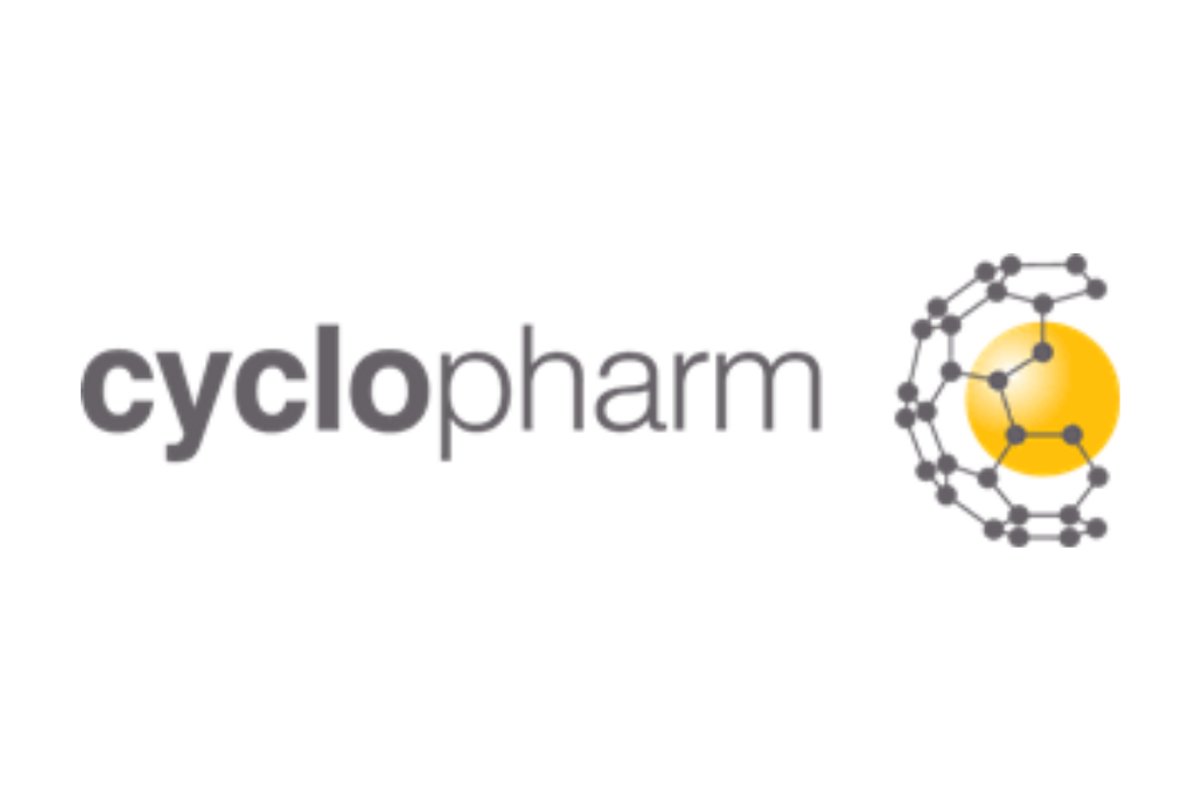Knight Therapeutics Inc., (TSX: GUD) ("Knight"), a Pan-American (ex-USA) specialty pharmaceutical company, announced today the launch of BIJUVA ® (estradiol and progesterone) capsules in Canada. BIJUVA ® is indicated for the treatment of moderate to severe vasomotor symptoms (VMS) associated with menopause in women with an intact uterus. VMS affects 60% to 80% of women entering menopause 1 and are commonly known as hot flashes or flushes and night sweats. BIJUVA ® is a once-daily combination of bioidentical estradiol and progesterone in a single oral capsule. The two hormones included in BIJUVA ® have the same structure as the hormones produced and circulating in a woman's body.
Dr. Vivien Brown, a renowned family physician recognized for her national and international advocacy efforts in promoting women's health remarked, "Menopause remains undertreated and there is a need to enhance the conversation, especially regarding the most debilitating vasomotor symptoms such as hot flashes and night sweats. These symptoms can be physically and emotionally challenging, impacting patients' wellbeing and function across several aspects of their daily life. The introduction of Bijuva® in Canada offers an option of hormone therapy (combination of estradiol and progesterone), to add to our toolbox of prescription choices, for the patient in need."
"We are very pleased to offer a new treatment option for menopausal women in Canada. BIJUVA ® offers women the opportunity to address the challenging symptoms of hot flashes and night sweats associated with menopause with a once-daily, single oral capsule," said Samira Sakhia, President and Chief Executive Officer of Knight.
Knight and TherapeuticsMD signed a license agreement in July 2018 pursuant to which TherapeuticsMD granted Knight the exclusive Canadian commercialization rights to BIJUVA ® . Under the terms of the license agreement related BIJUVA ® in Canada, Knight will pay TherapeuticsMD sales milestone fees and royalties based upon certain aggregate annual sales of BIJUVA ® in Canada.
About BIJUVA ®
BIJUVA® (17β-estradiol (estradiol hemihydrate)/micronized progesterone 1 mg/100 mg and 0.5 mg/100 mg) is a softgel formulation containing solubilized estradiol with micronized progesterone (P4) intended to treat moderate to severe VMS while protecting the endometrium from unopposed estradiol.
BIJUVA® is the first fixed-dose combination of two bioidentical hormones that are most often preferred by women with VMS (estradiol and micronized progesterone). The rationale for the development of BIJUVA was to provide healthcare providers with a well-studied and Health Canada approved treatment option that has demonstrated clinical effectiveness with a favorable benefit/risk profile.
The recommended dose of BIJUVA® is a single capsule, taken orally, each evening with food. BIJUVA® should be used for a duration consistent with treatment goals and the benefits and risks for the individual woman. Postmenopausal women should be periodically re-evaluated as clinically appropriate to determine if treatment is still necessary.
About Menopause
VMS are the hallmark symptom associated with menopause. Up to 80% of women experience VMS or hot flashes during the menopause transition 1,2 , with the majority of women reporting them to be moderate to severe 3 . For many women, VMS can have a significant negative impact on quality of life , sleep quality and mood. The decline in endogenous estrogen levels at the time of menopause plays a role in the onset of VMS and the genitourinary syndrome of menopause (GSM) which is characterized by vulvovaginal atrophy, atrophic vaginitis, or urogenital atrophy 4 - 9 . Furthermore, the menopausal transition represents a critical point in a woman's life that marks an increased risk for cardiovascular disease (CVD) 6,10 , diabetes 11 higher bone turnover and faster bone loss 12 . When left untreated, VMS are associated with significantly higher healthcare utilization costs, work productivity loss, and total costs 13 .
There is robust evidence that estrogen is a highly effective treatment for VMS and GSM 14,15 and when initiated before the age of 60 years (or within 10 years of menopause) it is associated with reduced risk for CVD, osteoporosis, and all-cause mortality 16-22 . Despite the available treatments, VMS is severely undertreated with less than 20% of postmenopausal women who have ever been prescribed estrogen therapy 23 , even when recognized groups such as the North American Menopause Society have stated that hormone therapy remains the most effective treatment for VMS and GSM. 24 . Currently in Canada, bioidentical hormone regimens are only available as separate components and are associated with poor adherence rates due to inconvenient dosing schedules 2 3 . As a result, both safety and efficacy are compromised due to inconsistent hormone bioavailability and bioactivity. It is especially important that the progesterone be provided at sufficient levels to protect the endometrium from estrogenic stimulation and prevent endometrial hyperplasia, which is a precursor of endometrial cancer 25-27 .
VMS can appear during pre-menopause, as early as two years prior to the last menstrual period, and usually peaks one year after this final menstrual period 2 8, 2 9 . Fifty percent of women will even experience VMS up to four years after their menopause started and it is estimated that VMS will persist up to 11 to 12 years after the final menstrual period in 12% of women 2 8- 3 0 .
Please see the Full BIJUVA ® Canadian Product Monograph available at https://knighttx.com/CA/products/ .
About Knight Therapeutics Inc.
Knight Therapeutics Inc., headquartered in Montreal, Canada, is a specialty pharmaceutical company focused on acquiring or in-licensing and commercializing pharmaceutical products for Canada and Latin America. Knight's Latin American subsidiaries operate under United Medical, Biotoscana Farma and Laboratorio LKM. Knight Therapeutics Inc.'s shares trade on TSX under the symbol GUD. For more information about Knight Therapeutics Inc., please visit the company's web site at www.knighttx.com or www.sedarplus.com .
Forward-Looking Statements
This document may contain forward-looking statements for Knight Therapeutics Inc. and its subsidiaries. These forward-looking statements, by their nature, necessarily involve risks and uncertainties that could cause actual results to differ materially from those contemplated by the forward-looking statements. Knight Therapeutics Inc. considers the assumptions on which these forward-looking statements are based to be reasonable at the time they were prepared but cautions the reader that these assumptions regarding future events, many of which are beyond the control of Knight Therapeutics Inc. and its subsidiaries, may ultimately prove to be incorrect. Factors and risks, which could cause actual results to differ materially from current expectations are discussed in Knight Therapeutics Inc.'s Annual Report and in Knight Therapeutics Inc.'s Annual Information Form for the year ended December 31, 2022 as filed on www.sedarplus.com . Knight Therapeutics Inc. disclaims any intention or obligation to update or revise any forward-looking statements whether because of new information or future events, except as required by law.
References:
- Gold EB, Colvin A, Avis N, Bromberger J, Greendale GA, Powell L, et al. Longitudinal analysis of the association between vasomotor symptoms and race/ethnicity across the menopausal transition: study of women's health across the nation. Am J Public Health. 2006;96(7):1226-35. Epub 2006/06/01. doi: 10.2105/ajph.2005.066936. PubMed PMID: 16735636; PubMed Central PMCID: PMCPMC1483882.
- Woods NF, Mitchell ES. Symptoms during the perimenopause: prevalence, severity, trajectory, and significance in women's lives. Am J Med. 2005;118 Suppl 12B:14-24. Epub 2006/01/18. doi: 10.1016/j.amjmed.2005.09.031. PubMed PMID: 16414323.
- Freeman EW, Sammel MD, Sanders RJ. Risk of long-term hot flashes after natural menopause: evidence from the Penn Ovarian Aging Study cohort. Menopause. 2014;21(9):924-32. Epub 2014/01/30. doi: 10.1097/gme.0000000000000196. PubMed PMID: 24473530; PubMed Central PMCID: PMCPMC4574289.
- Balfour JA, Heel RC. Transdermal estradiol. A review of its pharmacodynamic and pharmacokinetic properties, and therapeutic efficacy in the treatment of menopausal complaints. Drugs. 1990;40(4):561-82. Epub 1990/10/01. doi: 10.2165/00003495-199040040-00006. PubMed PMID: 2083514.
- Utian WH. Psychosocial and socioeconomic burden of vasomotor symptoms in menopause: a comprehensive review. Health Qual Life Outcomes. 2005;3:47-. doi: 10.1186/1477-7525-3-47. PubMed PMID: 16083502.
- Avis NE, Crawford SL, Greendale G, Bromberger JT, Everson-Rose SA, Gold EB, et al. Duration of menopausal vasomotor symptoms over the menopause transition. JAMA Intern Med. 2015;175(4):531-9. doi: 10.1001/jamainternmed.2014.8063. PubMed PMID: 25686030.
- Williams RE, Levine KB, Kalilani L, Lewis J, Clark RV. Menopause-specific questionnaire assessment in US population-based study shows negative impact on health-related quality of life. Maturitas. 2009;62(2):153-9. Epub 2009/01/23. doi: 10.1016/j.maturitas.2008.12.006. PubMed PMID: 19157732.
- Reed SD, Ludman EJ, Newton KM, Grothaus LC, LaCroix AZ, Nekhlyudov L, et al. Depressive symptoms and menopausal burden in the midlife. Maturitas. 2009;62(3):306-10. Epub 2009/02/14. doi: 10.1016/j.maturitas.2009.01.002. PubMed PMID: 19223131.
- McVeigh C. Perimenopause: more than hot flushes and night sweats for some Australian women. J Obstet Gynecol Neonatal Nurs. 2005;34(1):21-7. Epub 2005/01/28. doi: 10.1177/0884217504272801. PubMed PMID: 15673642.
- Avis NE. Depression During The Menopausal Transition. Psychol Women Q. 2003;27(2):91-100. doi: https://doi.org/10.1111/1471-6402.00089 .
- Gray KE, Katon JG, LeBlanc ES, Woods NF, Bastian LA, Reiber GE, et al. Vasomotor symptom characteristics: are they risk factors for incident diabetes? Menopause (New York, NY). 2018;25(5):520-30. doi: 10.1097/GME.0000000000001033. PubMed PMID: 29206771.
- Crandall CJ, Tseng CH, Crawford SL, Thurston RC, Gold EB, Johnston JM, et al. Association of menopausal vasomotor symptoms with increased bone turnover during the menopausal transition. J Bone Miner Res. 2011;26(4):840-9. Epub 2010/09/30. doi: 10.1002/jbmr.259. PubMed PMID: 20878774; PubMed Central PMCID: PMCPMC3179323.
- Sarrel P, Portman D, Lefebvre P, Lafeuille MH, Grittner AM, Fortier J, et al. Incremental direct and indirect costs of untreated vasomotor symptoms. Menopause. 2015;22(3):260-6. Epub 2015/02/26. doi: 10.1097/gme.0000000000000320. PubMed PMID: 25714236.
- MacLennan AH, Broadbent JL, Lester S, Moore V. Oral oestrogen and combined oestrogen/progestogen therapy versus placebo for hot flushes. Cochrane Database Syst Rev. 2004(4). doi: 10.1002/14651858.CD002978.pub2. PubMed PMID: CD002978.
- Gass ML, Stuenkel CA, Utian WH, LaCroix A, Liu JH, Shifren JL. Use of compounded hormone therapy in the United States: report of The North American Menopause Society Survey. Menopause. 2015;22(12):1276-84. Epub 2015/09/19. doi: 10.1097/gme.0000000000000553. PubMed PMID: 26382314.
- Boardman HM, Hartley L, Eisinga A, Main C, Roqué i Figuls M, Bonfill Cosp X, et al. Hormone therapy for preventing cardiovascular disease in post-menopausal women. Cochrane Database Syst Rev. 2015(3):Cd002229. Epub 2015/03/11. doi: 10.1002/14651858.CD002229.pub4. PubMed PMID: 25754617.
- Salpeter SR, Buckley NS, Liu H, Salpeter EE. The cost-effectiveness of hormone therapy in younger and older postmenopausal women. Am J Med. 2009;122(1):42-52.e2. Epub 2008/12/31. doi: 10.1016/j.amjmed.2008.07.026. PubMed PMID: 19114171.
- Salpeter SR, Walsh JME, Greyber E, Ormiston TM, Salpeter EE. Mortality associated with hormone replacement therapy in younger and older women: a meta-analysis. J Gen Intern Med. 2004;19(7):791-804. doi: 10.1111/j.1525-1497.2004.30281.x. PubMed PMID: 15209595.
- Hodis HN, Mack WJ. Hormone replacement therapy and the association with coronary heart disease and overall mortality: clinical application of the timing hypothesis. J Steroid Biochem Mol Biol. 2014;142:68-75. Epub 2013/07/16. doi: 10.1016/j.jsbmb.2013.06.011. PubMed PMID: 23851166.
- Manson JE, Aragaki AK, Rossouw JE, Anderson GL, Prentice RL, LaCroix AZ, et al. Menopausal Hormone Therapy and Long-term All-Cause and Cause-Specific Mortality: The Women's Health Initiative Randomized Trials. JAMA. 2017;318(10):927-38. Epub 2017/09/13. doi: 10.1001/jama.2017.11217. PubMed PMID: 28898378; PubMed Central PMCID: PMCPMC5728370.
- Mikkola TS, Tuomikoski P, Lyytinen H, Korhonen P, Hoti F, Vattulainen P, et al. Estradiol-based postmenopausal hormone therapy and risk of cardiovascular and all-cause mortality. Menopause. 2015;22(9):976-83. Epub 2015/03/25. doi: 10.1097/gme.0000000000000450. PubMed PMID: 25803671.
- Grady D, Rubin SM, Petitti DB, Fox CS, Black D, Ettinger B, et al. Hormone therapy to prevent disease and prolong life in postmenopausal women. Ann Intern Med. 1992;117(12):1016-37. Epub 1992/12/15. doi: 10.7326/0003-4819-117-12-1016. PubMed PMID: 1443971.
- Hammond CB. Women's concerns with hormone replacement therapy--compliance issues. Fertil Steril. 1994;62(6 Suppl 2):157s-60s. Epub 1994/12/01. PubMed PMID: 7958011.
- Menopause: The Journal of the North American Menopause Society. Vol. 29, No. 7, pp. 767-794. doi: 10.1097/GME.0000000000002028. @2022 by The North American Menopause Society.
- Effects of hormone replacement therapy on endometrial histology in postmenopausal women. The Postmenopausal Estrogen/Progestin Interventions (PEPI) Trial. The Writing Group for the PEPI Trial. JAMA. 1996;275(5):370-5. Epub 1996/02/07. doi: 10.1001/jama.1996.03530290040035. PubMed PMID: 8569016.
- Thom MH, Studd JW. Oestrogens and endometrial hyperplasia. Br J Hosp Med. 1980;23(5):506, 8-9, 11-3. Epub 1980/05/01. PubMed PMID: 6992895.
- Mack TM, Pike MC, Henderson BE, Pfeffer RI, Gerkins VR, Arthur M, et al. Estrogens and endometrial cancer in a retirement community. N Engl J Med. 1976;294(23):1262-7. Epub 1976/06/03. doi: 10.1056/nejm197606032942304. PubMed PMID: 177870.
- Politi MC, Schleinitz MD, Col NF. Revisiting the duration of vasomotor symptoms of menopause: a meta-analysis. J Gen Intern Med. 2008;23(9):1507-13. Epub 2008/06/04. doi: 10.1007/s11606-008-0655-4. PubMed PMID: 18521690; PubMed Central PMCID: PMCPMC2518020.
- Monteleone P, Mascagni G, Giannini A, Genazzani AR, Simoncini T. Symptoms of menopause - global prevalence, physiology and implications. Nat Rev Endocrinol. 2018;14(4):199-215. Epub 2018/02/03. doi: 10.1038/nrendo.2017.180. PubMed PMID: 29393299.
- Freeman EW, Sammel MD, Lin H, Liu Z, Gracia CR. Duration of menopausal hot flushes and associated risk factors. Obstet Gynecol. 2011;117(5):1095-104. Epub 2011/04/22. doi: 10.1097/AOG.0b013e318214f0de. PubMed PMID: 21508748; PubMed Central PMCID: PMCPMC3085137.
CONTACT INFORMATION:
| Knight Therapeutics Inc. | |
| Samira Sakhia | Arvind Utchanah |
| President & Chief Executive Officer | Chief Financial Officer |
| T: 514.484.4483 | T. +598.2626.2344 |
| F: 514.481.4116 | |
| Email: IR@knighttx.com | Email: IR@knighttx.com |
| Website: www.knighttx.com | Website: www.knighttx.com |





